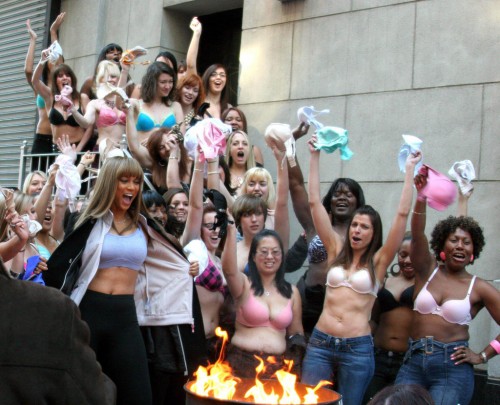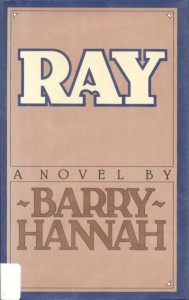The new We Are Champion is out. Oregon Trail poems, fuckage of maps, junk parades, notes on being torn apart by horses, and much more. Girls and boys and carrot discharge. Go read the only online literary magazine that has been documented next to Shaq.
But What About the Nipples? A Nice Conversation (Pt. 3)

Blake Butler, Kate Zambreno, Amy King and I recently had a nice, interesting, and lengthy conversation about gender, publishing and so much more, prompted by lots of things including the recent, and largely excellent discussion in Blake’s “Language Over Body” post about the second issue of We Are Champion. We thank you all so much for engaging with us on these issues. Part 1 can be found here and Part 2 can be found here.
Amy: I want to try to connect such modes of discussion and modes of writing with why we might have an inequitable publishing history by citing excerpts from Joan Retallack’s essay, “:RE:THINKING:LITERARY:FEMINISM.” Blake, when you say we’re “just people” or we’re “just bodies,” I think you’re resisting the notion that biology is essentialist and destiny (it’s not) that determines how and what we write. You are, in fact, by default arguing against the primary thread of feminist literary tradition that says women’s experiences have traditionally been ignored and must be heard via the writing and, I suspect, you imagine that writers could empathize their way into such positions and write those realities. Just a guess.
But this notion falls short of what types of writing have been deemed masculine and feminine. I hope Kate jumps in soon because she most likely has more to say on this matter than I.
But What About the Nipples? A Nice Conversation (Pt. 2)

Blake Butler, Kate Zambreno, Amy King and I recently had a nice, interesting, and lengthy conversation about gender, publishing and so much more, prompted by lots of things including the recent, and largely excellent discussion in Blake’s “Language Over Body” post about the second issue of We Are Champion. Over the next three days, I’m going to post that conversation and we all hope you guys join in on our conversation and share your thoughts. You can find Part 1 here.
Amy: We’ve got our rooms and we’re writing – we are no longer invisible, unless editors and prize committees try to render us so. My response was an attempt to point out the other option, which is to be inclusive (which means showcasing possibly disparate work that could be in dialogue), via a new mag, PARROT, that includes work fitting the aforementioned bill:
“PARROT will print the work of Stephanie Rioux’s My Beautiful Beds, Harold Abramowitz’s A House on a Hill (House on a Hill Part 1), Amanda Ackerman’s I Fell in Love with a Monster Truck, Will Alexander’s On the Substance of Disorder, Amina Cain’s Tramps Everywhere, Allison Carter’s All Bodies Are The Same and They Have The Same Reactions, Kate Durbin’s Kept Women, Joseph Mosconi’s But On Geometric, Amaranth Ravva’s Airline Music, Mathew Timmons’ Complex Textual Legitimacy Proclamation, Allyssa Wolf’s Loquela as well as the work of Michelle Detorie, Vanessa Place, Brian Kim Stefans and others…”
I realize this number counting feels isolated and is usually defended as ‘accidental’. Just see PW’s note on their all male “Top Ten” list for 2009. But what gets lost when we don’t query such disproportionate representation is that the interests and views and styles that men write in are what we all: male, female, and every other gender get conditioned to, starting with child lit on up to college “classics.” Such lack parallels why the Wall Street fuck up might have been prevented, or at least lessened. If variety is the spice of life, shouldn’t that hold true for the literary landscape as well? There should be a symphonic cacophony, no?
But What About the Nipples? A Nice Conversation (Pt. 1)

Blake Butler, Kate Zambreno, Amy King and I recently had an interesting and lengthy conversation about gender, publishing and so much more, prompted by lots of things including the recent, and largely excellent discussion in Blake’s “Language Over Body” post about the second issue of We Are Champion. Over the next three days, I’m going to post that conversation and we all hope you guys join in on our conversation and share your thoughts.
Amy: I don’t know if you’ll be pleased to know that conjured your name today, Kate, over at Roxane’s gig, HTMLGIANT. A post pimping the second issue of a new mag, “We Are Champion,” doesn’t note that it’s an all-male issue or that the first one included the work of only three women. Just one tiny example of a recurring indicator that women writers still aren’t taken seriously, actively sought out, promoted, etc.
Kate: I actually thought the great majority of the conversation that went around this issue on HTML Giant seemed considered and thoughtful, both the idea of “counting” as seeming problematic, and shouldn’t it just be about the writing, and the other side problematizing how when such an inequity occurs it’s just dismissed as “this is just the best writing out there,” etc. I think it’s a worthwhile issue to explore, if there is still such an inequity in terms of numbers of women published in literary journals (or anyone not straight, white, men). I’m thinking of Juliana Spahr/Stephanie Young’s Number Trouble piece that was published in Chicago Review. I agree with Roxane that this We Are Champion that didn’t feature any women writers is a symptom of a gender inequity that might be still there in terms of innovative writing, but is not the disease itself. And that zeroing in on this one issue is not really getting at the larger context (although perhaps opening the discussion?)
Roxane: I’m a Libra so I often have many and conflicting opinions about things. I do think the all-male issue of We Are Champion is problematic but I also know that there are many factors involved in how a given issue of a magazine is assembled. While there are many, many problems with how women writers are treated, regarded, and promoted within the publishing community, I am not convinced that the second issue of a small online magazine is an indicator of a problem that is systemic, pervasive, and ongoing.
We Are Champion Issue 2 is live, featuring new work by Jimmy Chen, Chris Oklum, Mike Young, Ben Mirov, Joseph Goosey, Tyler Flynn Dorholt, Miguel Morales, Mark Leidner, Reynard Seifert, and an interview with Ben Marcus about his forthcoming Flame Alphabet, who says, “I do this for myself, for my own standards, because I don’t know how to do it for anyone else. I’m the only reader whose thoughts I have deep access to. It would all be guesswork to do this for someone else, to address someone else’s standards.”

 If Gary Lutz does it–and he says he does–I don’t know how he does.
If Gary Lutz does it–and he says he does–I don’t know how he does.